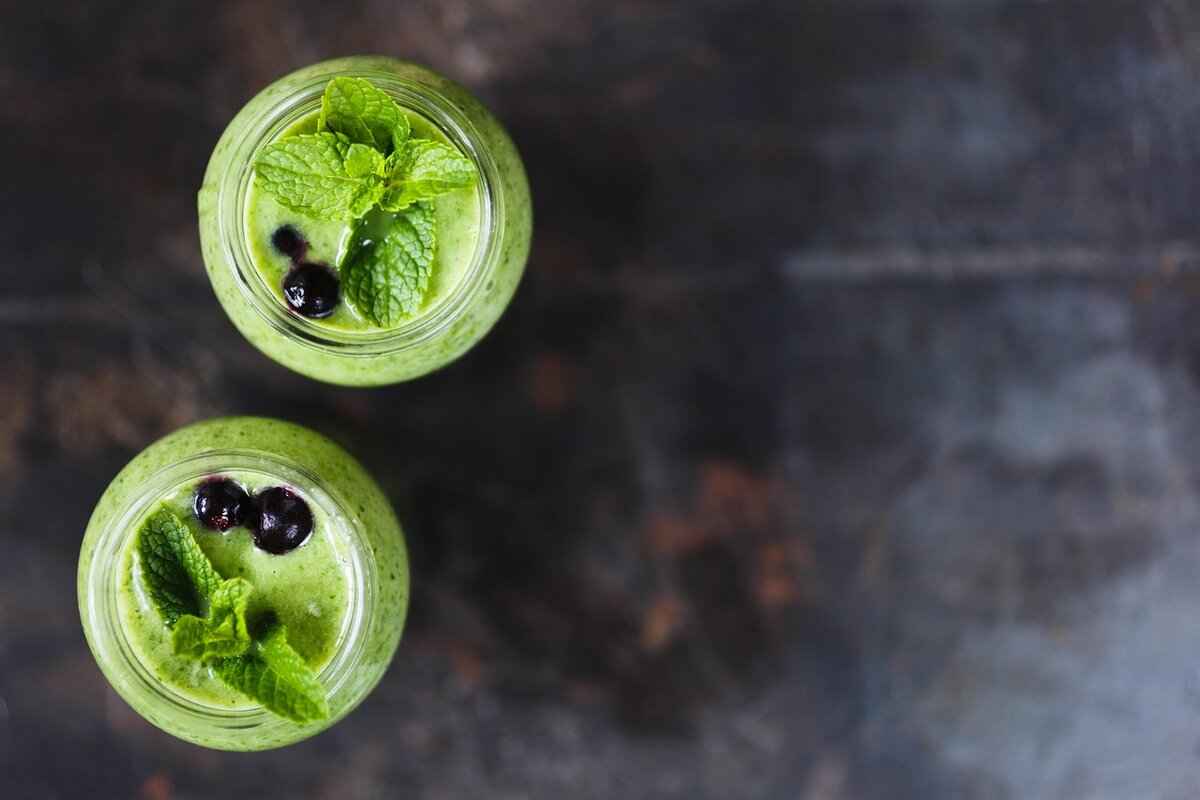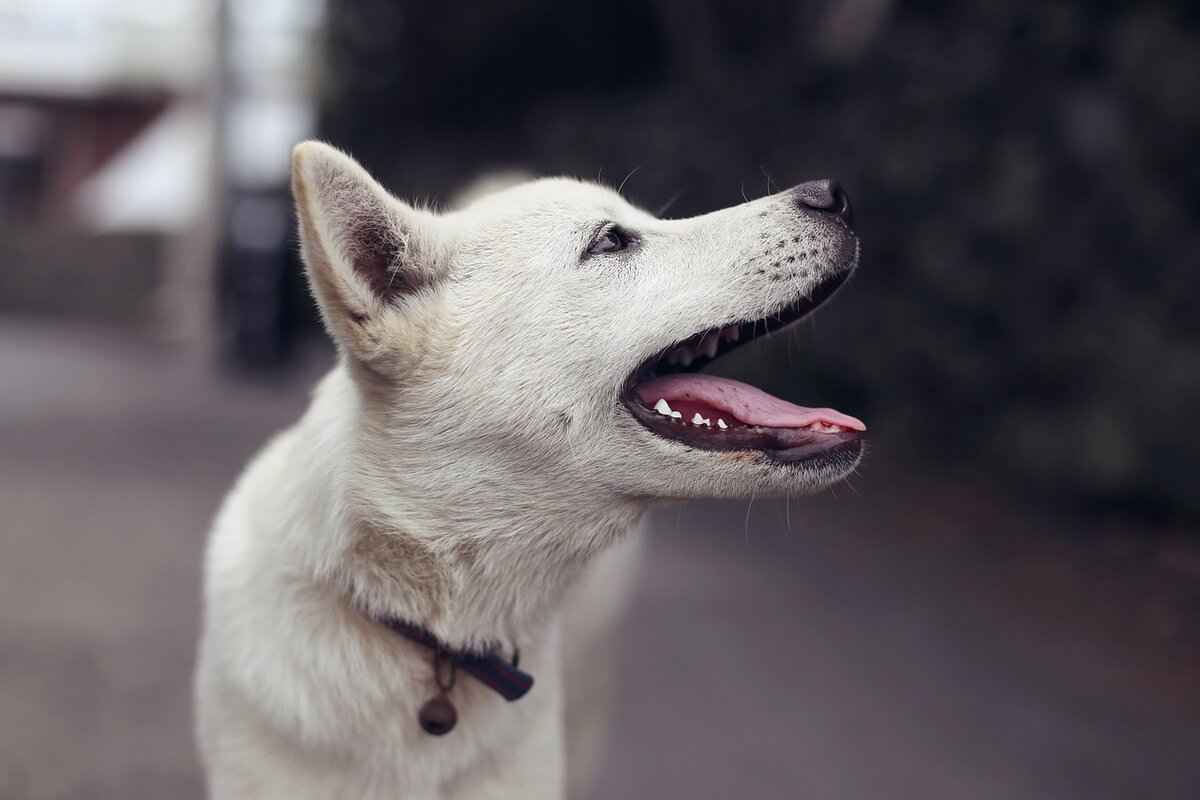Can dogs eat chia seeds? This question has become increasingly common among pet owners who are looking to enhance their dogs’ diets with nutritious options. Chia seeds, derived from the Salvia hispanica plant, are tiny yet packed with essential nutrients. In this article, we will delve into the benefits and risks of feeding chia seeds to dogs, providing insights into their nutritional value and potential effects on pet health.
Chia seeds are tiny, nutrient-dense seeds that originate from Central America. They are renowned for their high content of omega-3 fatty acids, fiber, and various vitamins and minerals. These seeds can absorb water and expand, which can be beneficial for hydration and digestion.
Generally, chia seeds are safe for dogs when fed in moderation. However, it is crucial to understand the correct serving sizes and preparation methods to prevent any digestive issues. Consulting your veterinarian before adding chia seeds to your dog’s diet is always recommended.
Chia seeds offer numerous health benefits for dogs:
- Improved Digestion: The high fiber content in chia seeds can aid in digestion and promote regular bowel movements.
- Enhanced Skin and Coat Health: Omega-3 fatty acids in chia seeds contribute to a shiny coat and healthy skin.
- Anti-Inflammatory Properties: These seeds may help reduce inflammation, benefiting dogs with joint issues or allergies.
Rich in omega-3 fatty acids, chia seeds can help promote heart health in dogs. These essential fats can also support cognitive function and reduce the risk of chronic diseases.
The fiber in chia seeds aids digestion and can help regulate bowel movements. This is particularly beneficial for dogs with digestive problems, as it can alleviate issues such as constipation and diarrhea.
Despite their benefits, there are some risks associated with chia seeds:
- Gastrointestinal Upset: Feeding chia seeds in excess or without proper preparation can lead to digestive issues.
- Choking Hazard: If not soaked or properly mixed, chia seeds can expand in the stomach, posing a choking risk.
Proper preparation is crucial for safe consumption. Soaking chia seeds in water or mixing them with dog food can enhance digestibility and prevent potential choking hazards. Always ensure the seeds are adequately hydrated before feeding them to your dog.
Determining the right serving size based on your dog’s weight and dietary needs is essential. As a general guideline:
- Small dogs: 1 teaspoon
- Medium dogs: 1-2 teaspoons
- Large dogs: 1 tablespoon
While rare, some dogs may experience allergic reactions to chia seeds. Symptoms can include:
- Itching
- Swelling
- Gastrointestinal Distress
If you notice any of these symptoms, seek veterinary attention immediately.
If you’re hesitant to introduce chia seeds into your dog’s diet, consider alternatives like flaxseeds or pumpkin seeds, which can also provide similar health benefits.
Always consult your veterinarian before introducing new foods into your dog’s diet. They can provide personalized advice based on your pet’s health, dietary needs, and any underlying conditions.

What Are Chia Seeds?
Chia seeds are small, oval-shaped seeds that come from the Salvia hispanica plant, which is part of the mint family. This plant is native to Central America and has been cultivated for centuries for its nutritional benefits. Chia seeds have gained popularity in recent years due to their impressive health profile and versatility in various diets.
These tiny seeds are a powerhouse of nutrients, packed with essential components that can benefit both humans and animals alike. They are particularly known for their high content of omega-3 fatty acids, which are crucial for heart health and reducing inflammation. Additionally, chia seeds are loaded with fiber, which aids in digestion and helps maintain a healthy gut.
One of the most remarkable features of chia seeds is their ability to absorb water, expanding up to 12 times their weight. This property not only makes them an excellent source of hydration but also contributes to their high fiber content, promoting a feeling of fullness and aiding in weight management.
- Omega-3 Fatty Acids: Essential for heart health and reducing inflammation.
- High Fiber Content: Supports digestion and regular bowel movements.
- Antioxidants: Help combat oxidative stress and support overall health.
- Protein: A good source of plant-based protein, making them suitable for various diets.
Chia seeds are also rich in antioxidants, which help protect the body from free radicals and may reduce the risk of chronic diseases. They provide a significant amount of protein for a plant-based food, making them a popular choice among vegetarians and vegans.
In addition to their nutritional benefits, chia seeds are incredibly versatile. They can be easily incorporated into a variety of dishes, including smoothies, oatmeal, salads, and baked goods. When mixed with liquids, they can create a gel-like consistency, making them an excellent thickening agent for recipes.
It’s important to note that while chia seeds offer numerous health benefits, they should be consumed in moderation. Overconsumption can lead to digestive issues, particularly for those not accustomed to high-fiber foods. Therefore, it’s advisable to start with small amounts and gradually increase your intake.
In summary, chia seeds are a nutrient-dense food that can provide a wide array of health benefits. Their rich content of omega-3 fatty acids, fiber, and antioxidants makes them an excellent addition to both human and pet diets. However, as with any new food, it’s essential to consider individual dietary needs and consult with a healthcare professional or veterinarian when introducing them into your or your pet’s diet.

Are Chia Seeds Safe for Dogs?
Chia seeds have gained popularity as a superfood for humans, but many dog owners wonder whether these tiny seeds can be safely included in their furry friends’ diets. While chia seeds are generally safe for dogs, it is essential to consider a few important factors to ensure their health and well-being.
Understanding the proper serving size is crucial when introducing chia seeds to your dog’s diet. These seeds are highly nutritious, packed with omega-3 fatty acids, fiber, and protein. However, moderation is key. Too many seeds can lead to digestive issues such as diarrhea or bloating. As a guideline, small dogs can safely consume about 1 teaspoon of chia seeds per day, while larger breeds can have up to 1 tablespoon.
Another important consideration is the preparation of chia seeds. Soaking the seeds in water before feeding them to your dog is highly recommended. This process allows the seeds to expand and form a gel-like consistency, which enhances their digestibility. Feeding dry chia seeds to dogs can pose a choking hazard or lead to gastrointestinal discomfort.
When introducing chia seeds to your dog’s diet, monitor them for any adverse reactions. While allergies to chia seeds are rare, some dogs may experience symptoms such as itching, swelling, or gastrointestinal distress. If you notice any of these signs, it is vital to consult your veterinarian immediately.
In addition to chia seeds, there are several other seeds and supplements that can be beneficial for dogs. Flaxseeds and pumpkin seeds are excellent alternatives that provide similar health benefits without the same potential risks. Always consult your veterinarian before making any significant changes to your dog’s diet, as they can provide tailored advice based on your pet’s specific health needs.
In summary, while chia seeds can be a nutritious addition to your dog’s diet, it is essential to approach their introduction with caution. By understanding the appropriate serving sizes and preparation methods, you can help prevent any potential digestive issues and ensure your dog enjoys the benefits of these superfood seeds safely.
Health Benefits of Chia Seeds for Dogs
Chia seeds have gained popularity as a superfood for humans, but their benefits extend to our canine companions as well. These tiny seeds are packed with essential nutrients that can significantly enhance your dog’s health. Below, we explore the various health benefits of chia seeds for dogs, including their impact on digestion, skin and coat health, and their potential anti-inflammatory properties.
One of the most notable benefits of chia seeds for dogs is their ability to promote healthy digestion. Rich in fiber, chia seeds help regulate bowel movements and can alleviate issues such as constipation or diarrhea. The soluble fiber in chia seeds absorbs water, forming a gel-like substance that aids in moving food through the digestive tract. This can be especially beneficial for dogs with sensitive stomachs or those prone to digestive disturbances.
Chia seeds are also known for their positive effects on skin and coat health. The high levels of omega-3 fatty acids found in these seeds contribute to a shiny, healthy coat and can alleviate dry skin. Omega-3 fatty acids are known to reduce inflammation, which can help dogs suffering from skin allergies or irritations. Regular inclusion of chia seeds in your dog’s diet may lead to a noticeable improvement in their overall appearance and comfort.
Another compelling reason to consider adding chia seeds to your dog’s diet is their anti-inflammatory properties. Chronic inflammation can lead to various health issues, including joint problems and allergies. The omega-3 fatty acids in chia seeds can help combat inflammation, making them a great addition for older dogs or those with existing health concerns. By incorporating chia seeds into their meals, you may help support your dog’s overall well-being and mobility.
Chia seeds are not only beneficial for digestion and skin health; they are also a powerhouse of essential nutrients. These seeds are rich in protein, calcium, magnesium, and antioxidants, which are vital for maintaining your dog’s health. By adding chia seeds to their diet, you provide a nutrient-dense supplement that can enhance their overall nutrition.
When introducing chia seeds to your dog’s diet, it’s important to do so gradually. Start by mixing a small amount into their regular food and observe for any adverse reactions. Soaking the seeds in water before feeding can enhance their digestibility and prevent choking hazards. Generally, small dogs can have about 1 teaspoon of chia seeds per day, while larger breeds can safely consume up to 1 tablespoon.
Before making any changes to your dog’s diet, it’s always best to consult with your veterinarian. They can provide tailored advice based on your dog’s specific health needs and dietary requirements. This ensures that you are making the best choices for your furry friend.
In summary, chia seeds can offer a range of health benefits for dogs, from improved digestion to enhanced skin and coat health. By incorporating these nutrient-dense seeds into your dog’s diet, you can support their overall well-being and vitality.
Omega-3 Fatty Acids
When considering the dietary needs of our furry friends, emerge as a vital component for promoting overall health, particularly in dogs. Among various sources, chia seeds stand out due to their rich nutrient profile, making them an excellent addition to canine diets. But how exactly do these tiny seeds benefit our pets?
Omega-3 fatty acids are essential fats that play a crucial role in maintaining a dog’s health. They are known for their ability to support heart health, improve skin and coat condition, and reduce inflammation. Dogs, much like humans, cannot produce these fatty acids on their own, necessitating their inclusion in their diet.
Chia seeds are one of the richest plant-based sources of omega-3 fatty acids, specifically alpha-linolenic acid (ALA). Just a small amount of these seeds can significantly boost your dog’s omega-3 intake. By incorporating chia seeds into your dog’s meals, you can help ensure they receive adequate levels of this essential nutrient.
- Promotes Heart Health: Omega-3 fatty acids are known to reduce the risk of heart disease by lowering blood pressure and cholesterol levels.
- Reduces Inflammation: These fatty acids can help alleviate inflammation, making them beneficial for dogs with joint issues, arthritis, or allergies.
- Enhances Skin and Coat: Regular consumption of omega-3s can lead to a healthier, shinier coat and alleviate skin conditions.
- Supports Brain Health: Omega-3s are crucial for cognitive function and can help improve memory and learning in dogs.
To maximize the benefits of chia seeds, it’s essential to prepare them properly. Soaking the seeds in water for about 30 minutes allows them to expand and become gelatinous, which aids in digestion. You can then mix these soaked seeds with your dog’s food, ensuring they receive the full nutritional benefits.
When introducing chia seeds to your dog’s diet, moderation is key. A general guideline is:
- Small dogs: 1 teaspoon per day
- Medium dogs: 1-2 teaspoons per day
- Large dogs: 1 tablespoon per day
Always adjust the serving size based on your dog’s weight and health status, and consult your veterinarian for personalized advice.
While chia seeds are generally safe, overfeeding can lead to gastrointestinal issues, such as diarrhea or bloating. Additionally, due to their high fiber content, it’s crucial to ensure your dog has access to fresh water to prevent dehydration.
Before introducing any new food, including chia seeds, into your dog’s diet, it’s best to consult your veterinarian. They can provide tailored recommendations based on your pet’s specific health needs and dietary requirements.
In summary, incorporating chia seeds into your dog’s diet can be a beneficial way to enhance their omega-3 fatty acid intake, promoting better overall health. However, moderation and proper preparation are essential to ensure your furry friend reaps the benefits without any risks.
High Fiber Content
Chia seeds are gaining popularity as a superfood for both humans and pets, particularly dogs. One of the standout features of these tiny seeds is their , which can significantly benefit your dog’s digestive health. Let’s delve deeper into how this fiber can aid in digestion and contribute to your dog’s overall well-being.
Fiber plays a crucial role in maintaining a healthy digestive system for dogs. It helps in regulating bowel movements and can prevent issues like constipation and diarrhea. A diet rich in fiber promotes the growth of healthy gut bacteria, which is essential for a balanced microbiome. This is where chia seeds shine, as they are packed with both soluble and insoluble fiber.
The soluble fiber in chia seeds absorbs water, forming a gel-like substance that can help to slow down digestion. This process ensures that nutrients are absorbed more efficiently, providing your dog with maximum benefits from their food. On the other hand, insoluble fiber adds bulk to the stool, which can help to regulate bowel movements and promote a healthy gut.
- Regulates Bowel Movements: The fiber in chia seeds can help dogs with irregular bowel movements by promoting regularity.
- Prevents Constipation: The gel-like consistency of soluble fiber helps to soften stools, making them easier to pass.
- Reduces Diarrhea: By absorbing excess water in the gut, chia seeds can help firm up loose stools.
- Supports Healthy Gut Flora: A fiber-rich diet can promote the growth of beneficial gut bacteria, which is essential for digestive health.
When introducing chia seeds to your dog’s diet, it is essential to do so gradually. Start with a small amount, such as 1 teaspoon for small dogs and 1 tablespoon for larger breeds. Soaking the seeds in water or mixing them into your dog’s food can enhance their digestibility and prevent any choking hazards. This preparation method allows the seeds to expand and become more palatable for your furry friend.
While chia seeds are generally safe for dogs, feeding them in excess can lead to gastrointestinal upset. Signs of overconsumption include bloating, gas, or diarrhea. It is vital to monitor your dog’s reaction when introducing chia seeds and adjust the serving size accordingly. If any adverse reactions occur, consult your veterinarian for guidance.
Before adding chia seeds or any new food to your dog’s diet, it is always best to consult with your veterinarian. They can provide personalized advice based on your dog’s specific health needs and dietary restrictions, ensuring a safe and beneficial addition to their meals.
In summary, the in chia seeds can be a valuable asset for dogs, particularly those facing digestive challenges. By understanding how to incorporate these seeds safely into your dog’s diet, you can help promote better digestion and overall health.
Potential Risks of Feeding Chia Seeds to Dogs
When considering adding chia seeds to your dog’s diet, it is essential to understand not only the benefits but also the potential risks associated with their consumption. While chia seeds are packed with nutrients, feeding them improperly or in excess can lead to adverse effects on your dog’s health.
Chia seeds, when consumed in moderation, can be a nutritious addition to your dog’s diet. However, overfeeding these tiny seeds can result in gastrointestinal issues. This is primarily due to their high fiber content, which, when introduced suddenly, can upset your dog’s digestive system. Symptoms may include:
- Diarrhea
- Vomiting
- Abdominal discomfort
It’s crucial to gradually introduce chia seeds into your dog’s diet to avoid these issues. Start with a small amount and monitor your pet’s reaction before increasing the serving size.
Improper preparation of chia seeds can also pose risks. When dry, chia seeds can absorb a significant amount of water, expanding in the stomach and potentially causing choking hazards or blockages. To mitigate these risks, always soak chia seeds in water before feeding them to your dog. This not only enhances digestibility but also ensures that they are safe for consumption.
Though rare, some dogs may experience allergic reactions to chia seeds. Signs of an allergy may include:
- Itching or scratching
- Swelling around the face or paws
- Gastrointestinal distress
If you notice any of these symptoms after introducing chia seeds, it’s important to consult your veterinarian immediately. They can provide guidance on whether to continue feeding chia seeds or explore alternative options.
To reduce the risk of adverse effects, understanding the appropriate serving size based on your dog’s weight is essential. Generally, small dogs can safely consume about 1 teaspoon of chia seeds per day, while larger breeds can have up to 1 tablespoon. Always adjust the serving size based on your dog’s individual needs and monitor for any digestive issues.
If you’re concerned about the risks associated with chia seeds, consider alternatives like flaxseeds or pumpkin seeds. These seeds also offer health benefits without the same potential risks when prepared correctly. Always consult your veterinarian before making significant changes to your dog’s diet.
In conclusion, while chia seeds can provide numerous health benefits for dogs, it is vital to be aware of the potential risks involved in their consumption. Proper preparation, appropriate serving sizes, and monitoring for allergies are key factors in ensuring your dog’s safety and well-being.

How to Prepare Chia Seeds for Dogs
When considering adding chia seeds to your dog’s diet, it is essential to understand the best preparation methods to ensure safety and maximize health benefits. Proper preparation of chia seeds is crucial for safe consumption. Soaking them in water or mixing them with dog food can enhance digestibility and prevent potential choking hazards. This article will delve into the various methods of preparing chia seeds for your furry friend.
Chia seeds can absorb up to 12 times their weight in water, forming a gel-like consistency. This property can be beneficial for dogs, as it aids in digestion and hydration. However, if fed dry, chia seeds may expand in the stomach, leading to discomfort or choking. Therefore, proper preparation is not just a recommendation but a necessity.
One of the most effective ways to prepare chia seeds is by soaking them in water. Here’s how to do it:
- Measure: Use a ratio of 1 part chia seeds to 10 parts water.
- Mix: Stir the seeds into the water to ensure they are evenly distributed.
- Wait: Allow the mixture to sit for about 30 minutes to 2 hours. This will give the chia seeds enough time to absorb the water and expand.
- Serve: Once the seeds have formed a gel, you can mix them into your dog’s food.
If you prefer not to soak chia seeds, mixing them directly with your dog’s food can also be effective. Here’s how to do it:
- Start Small: Begin with a small amount, such as 1 teaspoon for small dogs and up to 1 tablespoon for larger breeds.
- Combine: Mix the dry seeds thoroughly with the food to ensure even distribution.
- Monitor: Observe your dog for any signs of discomfort or digestive issues after introducing chia seeds.
Another enjoyable way to incorporate chia seeds into your dog’s diet is by adding them to homemade dog treats. Here’s a simple recipe:
Ingredients:- 1 cup whole wheat flour- 1/4 cup chia seeds (soaked)- 1/2 cup peanut butter (unsweetened)- 1/4 cup waterInstructions:1. Preheat the oven to 350°F (175°C).2. Mix the flour and soaked chia seeds in a bowl.3. Add peanut butter and water, stirring until well combined.4. Roll out the dough and cut it into shapes.5. Bake for 20-25 minutes until golden brown.6. Let cool before serving to your dog.
After introducing chia seeds into your dog’s diet, it’s important to monitor their reaction. Look for signs of allergic reactions such as itching, swelling, or gastrointestinal distress. If any adverse symptoms occur, consult your veterinarian promptly.
In summary, the proper preparation of chia seeds is essential for your dog’s health and safety. Whether you choose to soak them, mix them with food, or incorporate them into homemade treats, always start with small amounts and observe your dog’s reaction. With the right approach, chia seeds can be a nutritious addition to your dog’s diet, providing numerous health benefits.
Recommended Serving Sizes
When considering the addition of chia seeds to your dog’s diet, understanding the is crucial. This ensures that your furry friend receives the benefits of these nutrient-packed seeds without any adverse effects. The appropriate serving size can vary significantly based on your dog’s weight, age, and overall health.
Determining the right serving size based on your dog’s weight and dietary needs is essential. Generally, small dogs can have 1 teaspoon of chia seeds per day, while larger breeds may benefit from up to 1 tablespoon. However, it’s important to start with smaller amounts and gradually increase the serving size to monitor for any adverse reactions.
- Dog’s Weight: The size of your dog plays a significant role in determining how much chia seed they can safely consume. Smaller dogs, such as Chihuahuas or Pomeranians, should stick to the lower end of the serving size spectrum, while larger breeds like Golden Retrievers or Great Danes can handle more.
- Age and Activity Level: Puppies and active dogs may require different nutritional needs than older or less active dogs. Adjusting the serving size based on these factors can help maintain a healthy diet.
- Health Conditions: If your dog has any existing health conditions, such as gastrointestinal issues or allergies, consult your veterinarian for tailored advice on serving sizes.
When introducing chia seeds, it’s best to start with a smaller amount than the recommended serving size. This allows your dog’s digestive system to adjust. You can incorporate chia seeds into their diet in various ways:
- Soaked Chia Seeds: Soaking chia seeds in water for at least 30 minutes before feeding can enhance their digestibility and prevent choking hazards.
- Mixing with Food: Chia seeds can be mixed into your dog’s regular food. This can help mask the taste and make it more appealing.
After introducing chia seeds, keep an eye on your dog for any signs of discomfort or digestive issues. Symptoms such as bloating, gas, or changes in stool can indicate that the serving size may need to be adjusted. If any concerning symptoms arise, consult your veterinarian immediately.
In summary, while chia seeds can be a healthy addition to your dog’s diet, understanding the right serving size is vital for their health and well-being. Always consider your dog’s individual needs, and when in doubt, consult with a veterinarian to ensure you’re providing the best nutrition possible.
Signs of Chia Seed Allergies in Dogs
When considering the inclusion of chia seeds in your dog’s diet, it’s essential to be aware of potential allergic reactions. While these seeds offer numerous health benefits, some dogs may react negatively to them. Understanding the signs of an allergy can help you ensure your pet’s safety and well-being.
Allergic reactions in dogs can manifest in various ways, and it’s crucial for pet owners to recognize these symptoms. Common signs include:
- Itching and Scratching: One of the most noticeable signs is persistent itching. Dogs may scratch excessively, leading to skin irritation or even infections.
- Swelling: Allergies can cause localized swelling, particularly around the face, ears, or paws. This swelling may be accompanied by redness or warmth in the affected areas.
- Gastrointestinal Distress: Symptoms such as vomiting, diarrhea, or excessive gas can indicate that your dog is having a reaction to chia seeds. These digestive issues can be distressing for both the dog and the owner.
- Respiratory Issues: In some cases, dogs may develop respiratory symptoms, including coughing, sneezing, or difficulty breathing. This is more common in severe allergic reactions and requires immediate veterinary attention.
If you suspect that your dog is experiencing an allergic reaction to chia seeds, it is crucial to take prompt action. Here are the steps you should follow:
- Stop Feeding Chia Seeds: Immediately discontinue giving your dog chia seeds or any food containing them.
- Monitor Symptoms: Keep a close eye on your dog’s symptoms. If they worsen or do not improve within a few hours, it may be time to seek veterinary care.
- Consult Your Veterinarian: Always reach out to your veterinarian for professional advice. They can provide guidance on how to manage the situation and may recommend treatment options such as antihistamines or other medications.
While it may not be possible to prevent all allergic reactions, there are steps you can take to minimize the risk:
- Introduce New Foods Gradually: When adding any new food to your dog’s diet, including chia seeds, do so slowly. This allows you to monitor for any adverse reactions.
- Consult Your Veterinarian: Before introducing chia seeds or any new supplement, consult your veterinarian. They can help determine if your dog is a good candidate for these seeds based on their health history.
- Watch for Other Allergens: Be aware of other potential allergens in your dog’s diet. If your dog has a history of allergies, it may be wise to avoid chia seeds altogether.
While chia seeds can be a beneficial addition to your dog’s diet, it’s essential to remain vigilant about the possibility of allergic reactions. By understanding the signs of allergies and taking appropriate action, you can help ensure your dog’s health and happiness. Always consult your veterinarian when in doubt, as they can provide tailored advice based on your dog’s unique needs.

Alternatives to Chia Seeds for Dogs
When considering the addition of nutritional supplements to your dog’s diet, chia seeds often come to mind due to their health benefits. However, if you’re unsure about incorporating them, rest assured that there are several alternatives that can provide comparable advantages for your furry friend.
Several seeds and grains can serve as excellent substitutes for chia seeds, offering similar health benefits without the potential concerns. Here are a few noteworthy options:
- Flaxseeds: Rich in omega-3 fatty acids, flaxseeds are a fantastic alternative. They can help support your dog’s heart health and reduce inflammation. Flaxseeds are also high in fiber, which aids in digestion.
- Pumpkin Seeds: These seeds are not only delicious but also packed with nutrients. They contain antioxidants, magnesium, and zinc, which can enhance your dog’s overall health, including skin and coat quality.
- Sunflower Seeds: A great source of vitamin E and healthy fats, sunflower seeds can promote a shiny coat and support immune function. Just ensure to remove the shells before feeding them to your dog.
- Hemp Seeds: Known for their balanced omega fatty acids, hemp seeds can help maintain your dog’s skin health and provide energy. They’re also a good source of protein.
Each of these alternatives brings its unique set of benefits. For instance, while chia seeds swell in water and provide a gel-like consistency, flaxseeds and pumpkin seeds can be ground into a powder for easier digestion. This can be particularly beneficial for dogs with sensitive stomachs.
In terms of nutritional value, flaxseeds and chia seeds are comparable in omega-3 content, but flaxseeds have a higher concentration of lignans, which have antioxidant properties. Pumpkin seeds, on the other hand, are rich in zinc and magnesium, which contribute to a healthy immune system.
While these seeds are generally safe for dogs, moderation is crucial. Overfeeding any type of seed can lead to digestive issues, including diarrhea or constipation. Always introduce new foods gradually and monitor your dog’s reaction.
To safely add these seeds to your dog’s meals, consider the following tips:
- Start Small: Begin with small amounts to gauge your dog’s tolerance. For most dogs, a teaspoon of ground seeds mixed into their food is a good starting point.
- Mix with Food: Combine seeds with your dog’s regular food to enhance palatability and ensure they are consumed.
- Consult Your Vet: Before making significant changes to your dog’s diet, it’s wise to consult your veterinarian, especially if your dog has existing health issues.
In conclusion, while chia seeds offer numerous health benefits, there are plenty of other options available that can provide similar nutritional support. Whether you choose flaxseeds, pumpkin seeds, or another alternative, always prioritize your dog’s health and well-being by introducing new foods cautiously.

Consulting Your Veterinarian
When considering any changes to your dog’s diet, it is imperative to consult your veterinarian first. Every dog is unique, with specific health needs, dietary requirements, and potential underlying conditions that may affect their ability to digest new foods. A veterinarian can provide you with tailored advice that considers your pet’s individual circumstances.
Veterinarians possess extensive knowledge about canine nutrition and can help you navigate the complexities of introducing new foods, such as chia seeds. They can assess your dog’s current health status and determine whether a particular food is suitable. For example, if your dog has a pre-existing condition like pancreatitis or allergies, certain foods may exacerbate these issues.
- Health Assessment: Before adding any new food, your vet will conduct a thorough health assessment. This may include checking for allergies, digestive issues, and overall health to ensure that your dog can safely incorporate new ingredients.
- Dietary Needs: Different dogs have varying nutritional needs based on their age, breed, size, and activity level. Your veterinarian can recommend appropriate food types and serving sizes that align with your dog’s lifestyle.
- Monitoring: After introducing a new food, it is essential to monitor your dog for any adverse reactions. Your vet can guide you on what signs to look out for, such as changes in appetite, behavior, or gastrointestinal distress.
Moreover, a vet can help you understand the importance of moderation. Even healthy foods can cause issues if fed in excess. For instance, while chia seeds are known for their health benefits, they can lead to digestive problems if not given in appropriate amounts. Your veterinarian can provide guidance on how to introduce them gradually and safely.
In addition to chia seeds, your veterinarian can suggest other nutritious alternatives that may be more suitable for your dog. This is particularly useful if your dog has shown signs of intolerance or allergies to certain foods. Options like flaxseeds or pumpkin seeds can also offer health benefits without the risks associated with chia seeds.
Finally, it’s essential to maintain an open line of communication with your veterinarian. Regular check-ups and discussions about your dog’s diet can help ensure that your pet remains healthy and happy. Always feel free to ask questions or express concerns regarding your dog’s nutrition. Your vet is there to help you make informed decisions that promote your dog’s well-being.
In summary, the importance of consulting your veterinarian cannot be overstated when considering new additions to your dog’s diet. Their expertise is invaluable in ensuring that your furry friend receives the best possible care tailored to their specific needs.
Frequently Asked Questions
- Can I feed my dog chia seeds every day?
While chia seeds can be a healthy addition to your dog’s diet, it’s important to feed them in moderation. Too much can lead to digestive issues. A little sprinkle here and there is usually best!
- What is the best way to prepare chia seeds for my dog?
Soaking chia seeds in water before feeding them to your dog is a great way to enhance digestibility. You can also mix them into your dog’s food for a tasty and nutritious boost!
- Are there any side effects of feeding chia seeds to dogs?
Yes, some dogs might experience gastrointestinal upset if they eat too many chia seeds or if they aren’t prepared correctly. Watch for signs like bloating or diarrhea and consult your vet if you’re concerned.
- What are some alternatives to chia seeds for dogs?
If you’re unsure about chia seeds, consider flaxseeds or pumpkin seeds. They offer similar nutritional benefits and can be a great addition to your dog’s diet!
- How do I know if my dog is allergic to chia seeds?
Allergic reactions are rare, but if you notice symptoms like itching, swelling, or gastrointestinal distress after feeding chia seeds, it’s best to stop and consult your veterinarian.














